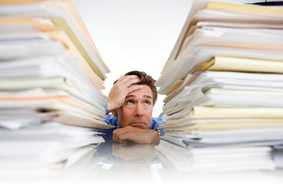Researchers from the University of Cambridge have found that 70% of site workers and 85% of office workers across the construction industry find their jobs as moderately stressful, very stressful, or extremely stressful.
The study, published in the journal Healthcare, gathered data from comprise 40 people (33 men and seven women) from 12 different employers across four building sites. Among the participants, 19 were speciality subcontractors, 16 were general contractors and five were consultants. The roles ranged from site management to mechanical, electrical, and plumbing subcontractors.
The major sources of stress were found to be high workloads, tight deadlines and situations not being under one’s control. Responsibility for the safety of others emerged as another stressor for those on site.
While stress is not necessarily a bad thing – it can generate adrenalin, which enhances performance, which makes tasks more rewarding – when it becomes overwhelming it can lead to mental health issues.
Olivia Remes, co-author of the study and a mental health researcher at the Cambridge Laing O’Rourke Centre at the Department of Engineering, emphasised the importance of effective coping mechanisms: “Opening up to family, friends, or colleagues about workplace stress can be helpful. Having a robust support network acts as a buffer against stress and is beneficial for mental health.”
Some of the participants coped with the stress by “blocking it out” or keeping it to themselves. Dr Remes said: “Blocking out or bottling up stressful problems may lead to feelings of helplessness and other negative consequences. Instead, connecting with supportive others during stressful times can be more effective. In fact, self-disclosure and sharing your thoughts with a close family member, friend or colleague has been linked to greater resilience.”
Co-author Rachel Blair Winkler recommended tailoring support programmes to the individual. “It’s essential to consider various professional responsibilities, environmental conditions, and organisational cultures when developing wellbeing initiatives,” she said. “This will be one of the next steps in the research.”


